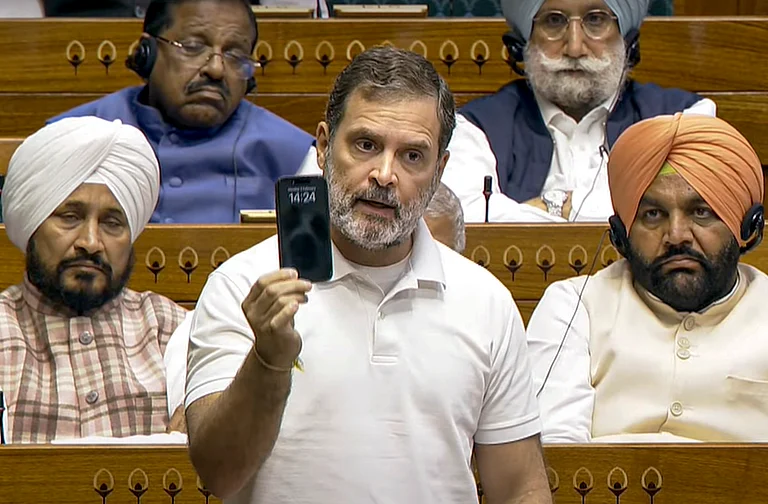Gianni Infantino is all set to lead Fifa into a new era with a third term as president. The Swiss-Italian administrator was recently re-elected unopposed as the chief of one of the world’s richest sports bodies.
Infantino took over the reins in the immediate aftermath of the 2015 Fifa corruption scandal. His term, while not entirely smooth, has been marked by a focus on reform and expansion of football worldwide. The 53-year-old brought in VAR (Video Assistant Referee) at the international level, and in his tenure, Fifa’s economy has strengthened.
Fifa made $7.5 billion in revenue in the 2022 World Cup cycle (the period from 2019-22). In the 2026 World Cup cycle (2023-26) it expects to earn $11 billion in revenue.
However, Infantino has also faced criticism for some of his decisions, such as his defence of Qatar hosting the 2022 World Cup and the expansion of the next World Cup to 48 teams.
Here are some of the key moments in Infantino’s presidency, which started in 2016, and is certain to continue till at least 2027.
World Cup 2022
The selection of Qatar as World Cup host did not happen under Infantino’s watch. It was his controversial predecessor Sepp Blatter, who was in charge when the country was awarded hosting rights in 2010. It was also Blatter at the top when the 2015 Fifa corruption scandal was unearthed. But Infantino has been seen as being lenient towards countries that have been accused of bribery and corruption in the bidding process for the World Cup. The Swiss-Italian will also linger long in memory due to his at times evocative, at times cringeworthy “Today I feel” speech on the eve of the Qatar World Cup.
Expansion of World Cup to 48 teams
The FIFA Council reached the decision in January 2017 to increase the number of teams in a World Cup from 32 teams to 48. The 2026 World Cup will be played as per this format.
The 48 teams would be split up into 16 groups, each with three teams, under the new structure. Similar to the previous structure, the top two teams from each group would move on to a knockout stage of 32 teams. The expansion would need the playing of 16 more matches, bringing the total to 80.
Among the advantages of this move is that more teams from the Caribbean, Africa, and Asia would be able to compete in the competition.
On the other hand, there are fears that expanding the World Cup would lead to a fall in the quality of football and increased injuries.
Introduction of VAR
Infantino approved the use of VAR (Video Assistant Referees) in 2016, not long after he was elected as the president.
VAR had been tried in spurts before, and Infantino was always a supporter of using technology in football. He regarded VAR as a way to increase the reliability of refereeing judgments and decrease the number of contentious calls that could have an impact on match results.
VAR has been criticized for disrupting the game's flow and causing confusion and controversy. Manchester City’s Jack Grealish said it was “ruining the game.” However, VAR has also brought about greater accuracy and fairness in decisions on the field.
Introducing Financial Reforms
Introducing financial reforms to address corruption and enhance the organization's transparency and accountability was one of Infantino’s top tasks as president.
Among the steps that he has implemented are:
1. Publication of Fifa’s financial report: Infantino mandated that Fifa publish an annual financial report that contains comprehensive information on the company's income, outlays and investments. This action was taken to encourage more responsibility and transparency in Fifa’s financial management.
2. Independent auditors: Infantino engaged independent auditors to examine Fifa’s financial records and make sure the group was adhering to international accounting standards. The objectives of this measure were to lower the likelihood of financial irregularities and increase the accuracy of financial reporting.
3. Establishment of a compensation committee: Infantino established a compensation committee to supervise FIFA's senior executives' compensation and guarantee that their pay was fair and appropriate. With this action, FIFA's top administration was encouraged to be more accountable while minimizing conflicts of interest.
The Fifa Council
The Fifa Council was established in 2016 as a replacement of the Fifa Executive Committee.
The FIFA president, eight vice presidents, and 28 members chosen by Fifa member associations make up the council's 37 members. The council is in charge of making decisions on a variety of matters pertaining to the regulation and administration of football and meets at least four times a year.





















